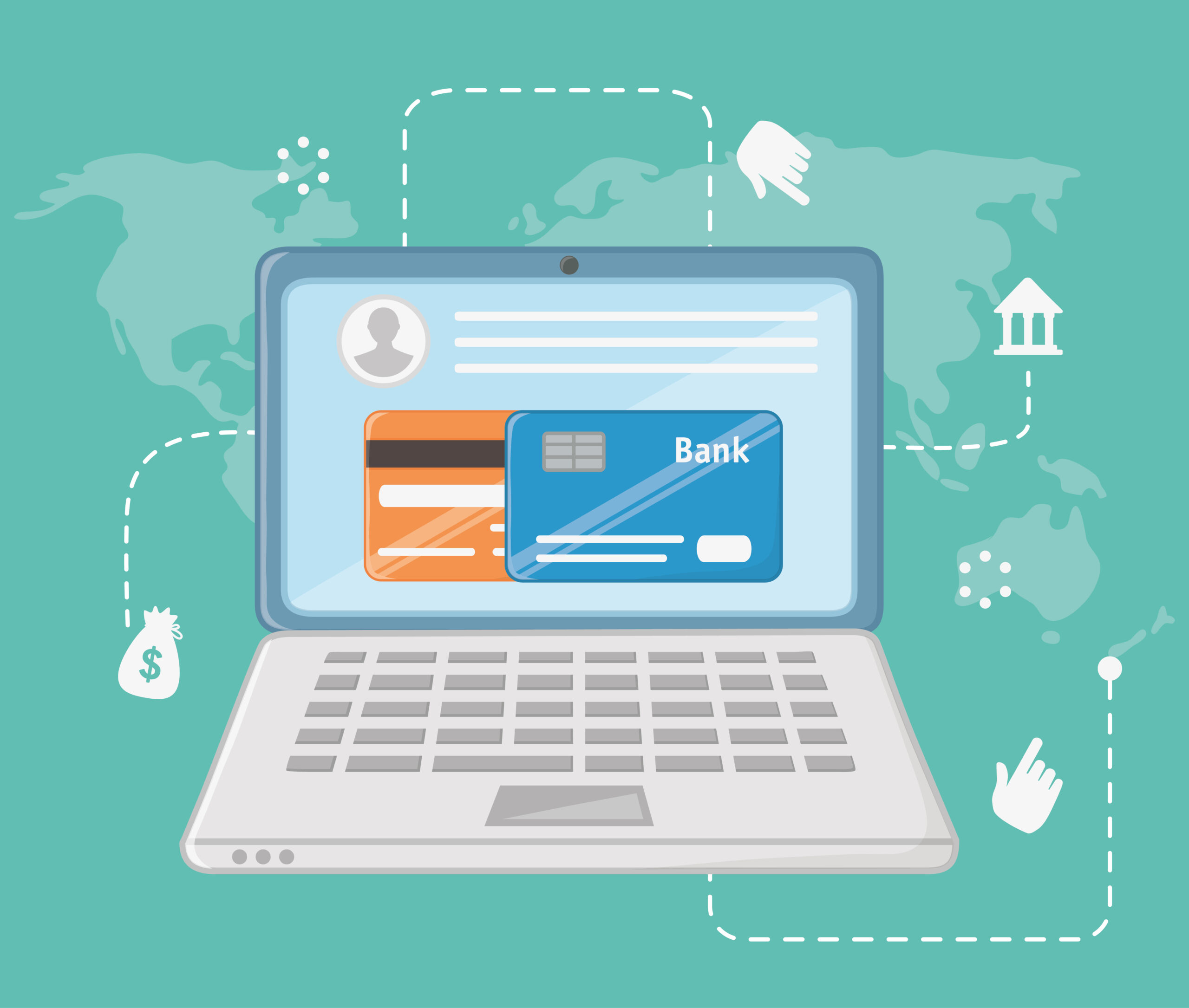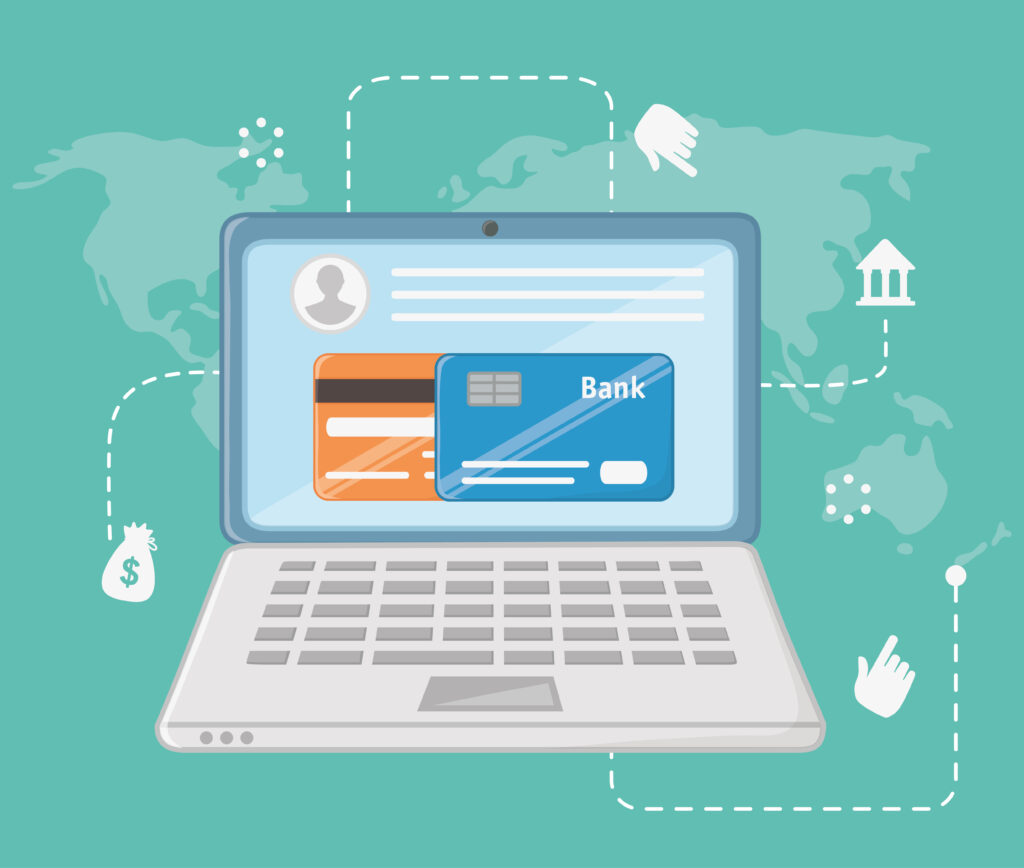
How Is an Online Bank Different From a Retail Bank?
Constant technological innovations and digitization have not skipped the banking industry. Consequently, retail banks have found a worthy opponent in the form of online banking platforms.
While both retail and online banks offer more or less the same services, clients are still bound to have a different experience with both. In this short guide, we’ll be taking a look at the fundamental differences between online and retail banks and shedding some light on their respective pros and cons.

Online Banks vs. Retail Banks: Definitions
___________
First things first, what are retail and online banks? Their definitions can be summed up as follows:
- Retail banks: A retail bank is a traditional bank, i.e., a bank with physical branch locations that clients can visit and enjoy all sorts of financial services.
- Online banks: An online bank — also known as an internet bank or digital bank — is a financial online platform, either tied to a retail bank or operating autonomously, which provides users with a wide range of financial services. Those include checking and savings accounts, payment processing, and money transfers, all of which are typically accessible via websites or mobile apps.
How Is an Online Bank Different From a Retail Bank?
___________
Aside from the obvious surface differences, online and retail banks differ in several other key aspects, such as:
Convenience and Accessibility
Online banks are unparalleled when it comes to convenience. They let customers access their accounts anytime, anywhere, and they often provide 24/7 client support, ensuring customers can receive proper assistance even during weekends and holidays.
Online transactions and services are also convenient. With just a few clicks or taps, users can transfer funds, pay their bills, and micromanage their finances electronically, without having to waste precious time going to a physical branch.
In contrast, brick-and-mortar banks have limited working hours and require in-person visits for a lot of financial services. Note, though, that a lot of online banks do not feature all financial services. For example, it is still pretty much mandatory to visit a retail bank to apply for a loan or a mortgage.
Costs
An online bank has lower operating costs compared to its retail counterparts. There is no rent; there is no maintenance; there is less staff to pay, etc. Moreover, by relying on a number of automated financial services and eliminating the need for the analog infrastructure that is necessary for a retail bank, internet banks can render their services more cost-effective.
Consequently, online banks sometimes offer higher interest rates on, say, savings accounts. On the other hand, retail branches tend to incur higher fees for customers. This cost advantage makes online banks an attractive option not only for clients looking for a more convenient way to manage their finances but also those on a budget who are seeking a more affordable banking experience.
Personalized Banking Experience
The online financial market is becoming ever larger. To stay competitive, many online banks offer users customizable, user-friendly platforms that allow for personalized financial management. What’s more, they provide a wide range of resources and customer support to help build financial literacy and ensure clients know what they’re doing with their funds.
In contrast, retail bank clients might not have ready access to such tools, having to rely on in-person interactions to get most of the work done. As mentioned in the intro, online banks prioritize convenience. That is, they aim to deliver as seamless a banking experience as possible. This is their biggest selling point, especially nowadays when the average client’s professional life tends to be hectic, leaving no room for frequent visits to the bank.
Security and Trust
It has been estimated that a cyberattack takes place every 39 seconds. As a consequence, digital safety has become everyone’s top priority, especially when it comes to finances. Fortunately, online banks almost universally feature encryption, multi-factor authentication, and biometric login systems to safeguard customer information.
However, even though online banks put a huge emphasis on cyber security, the nature of the internet is such that no data is ever truly safe. Online banks actively address user concerns by listing transparent terms of service, emphasizing clear communication, and doing their best to provide users with educational material that can help them protect their funds.
Personal Relationships
Although sometimes not convenient, one of the advantages of retail banks is their insistence on face-to-face interactions and personalized assistance. A lot of customers eventually come to value the relationships they establish with bank employees and the advice they receive from them.
As online banks prioritize self-service, they lose the element of intimacy and guidance provided by retail bankers, tellers, and officers. Consequently, some Internet banks are striving to bridge the gap between the convenient and interpersonal banking elements. Of course, in turn, retail banks are developing online solutions to streamline some of their processes
Do Online Banks Have Any Downsides?
___________
So far, it seems like online banks take the wreath as the obvious winner in this banking clash. However, there are some downsides to them that might dissuade a lot of potential clients. For example:
- Technological challenges: While most people are getting comfortable with Internet banking, not all of them are. That is, more retail banks can get away with a lack of online functionalities than online-only banks can get away with the lack of a physical branch. Of course, any financial institution that offers clients both in-person and digital banking services is clearly in the winning position.
- Depositing issues: Online banks pride themselves on convenient check depositing options. However, clients often cannot deposit or withdraw cash directly through online platforms, which is one of the biggest cons of digital banking.
- Limited account options: Online banks often feature a narrower range of services, focusing mostly on checking and savings accounts. More demanding users, such as serious investors, typically look for a wider range of financial products, such as mortgages, loans, etc. Traditional banks offer all of those, so they’re the obvious choice for more financially involved clients.